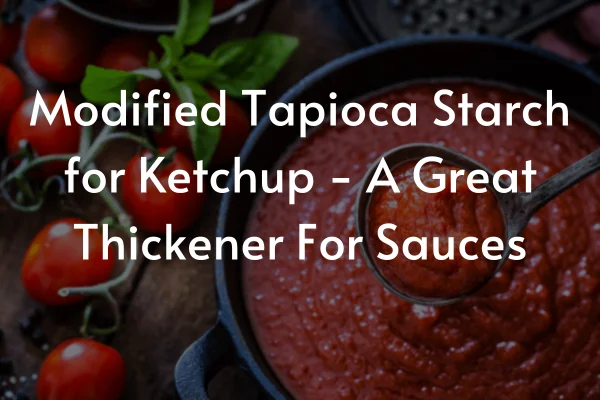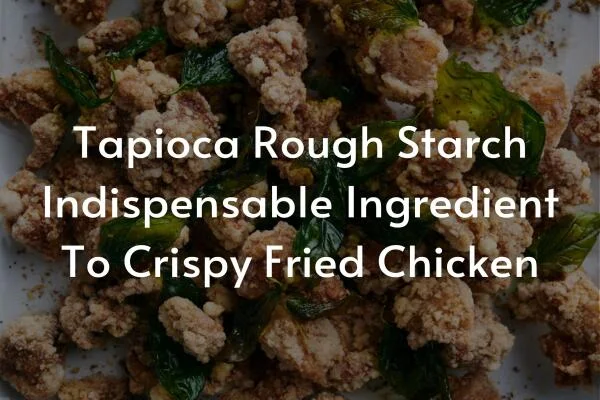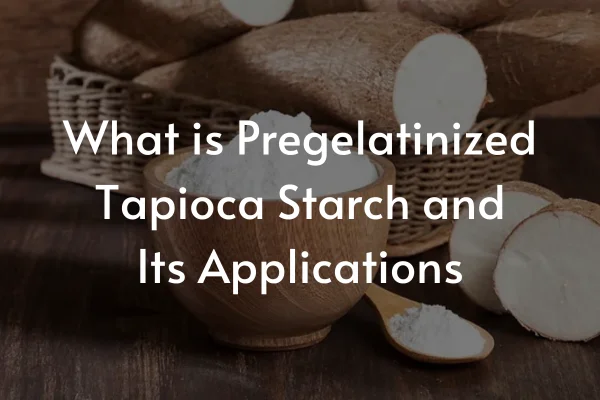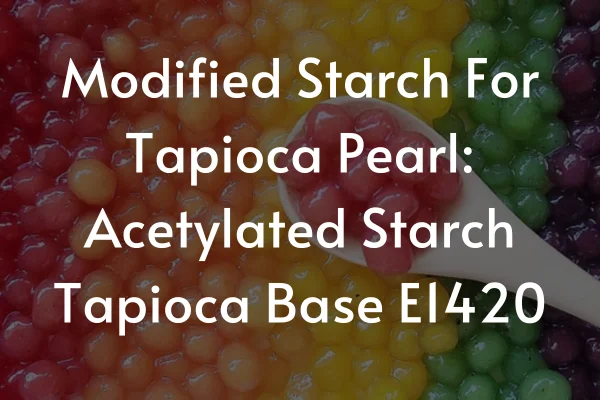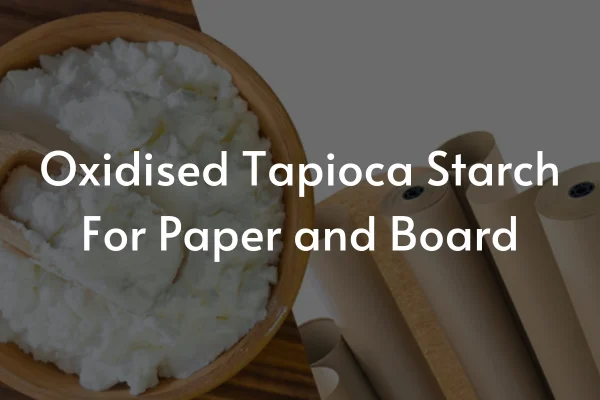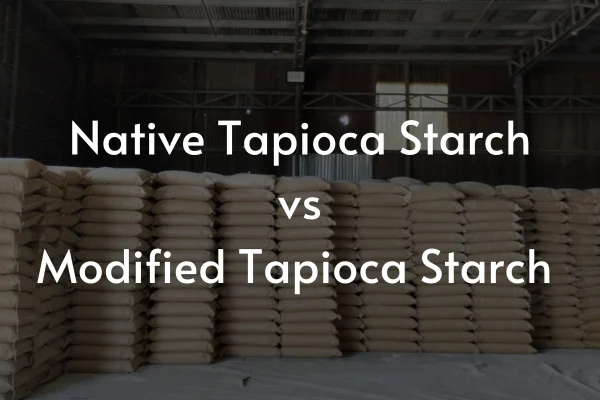
How To Make Charcoal Briquette with Tapioca Starch
- Home
- Tapioca Starch Applications
- How To Make Charcoal Briquette with Tapioca Starch
How to make charcoal briquette with tapioca starch is a question of many charcoal manufacturer. Tapioca starch, which some people also call tapioca flour, is a starchy substance extracted from the cassava root (manioc or yuca roots). It is a versatile ingredient commonly used in food industry and even non-food one due to its great thickening, binding, and stabilizing properties. This artical will help charcoal manufacturers to make charcoal briquette with tapioca starch with an ideal recipe.
Which tapioca starch type for Charcoal Briquette Production?
Pregelatinized tapioca starch , or Alpha starch (a cold-swelling tapioca starch) is used mainly for the production of charcoal briquettes/pellets, which are a natural product that protects the environment. It is non-toxic, odorless, flammable and does not create toxic fumes, and especially, it does not pollute the environment or have health effects at all , ensuring ECO environmental protection requirements.
The product has strong adhesion, high durability, helps increase the shapeability of compressed coal, prevents cracking, etc., and is widely used in the production of coal used in exhaust gas and water treatment. waste, construction and telecommunications, shisha,...
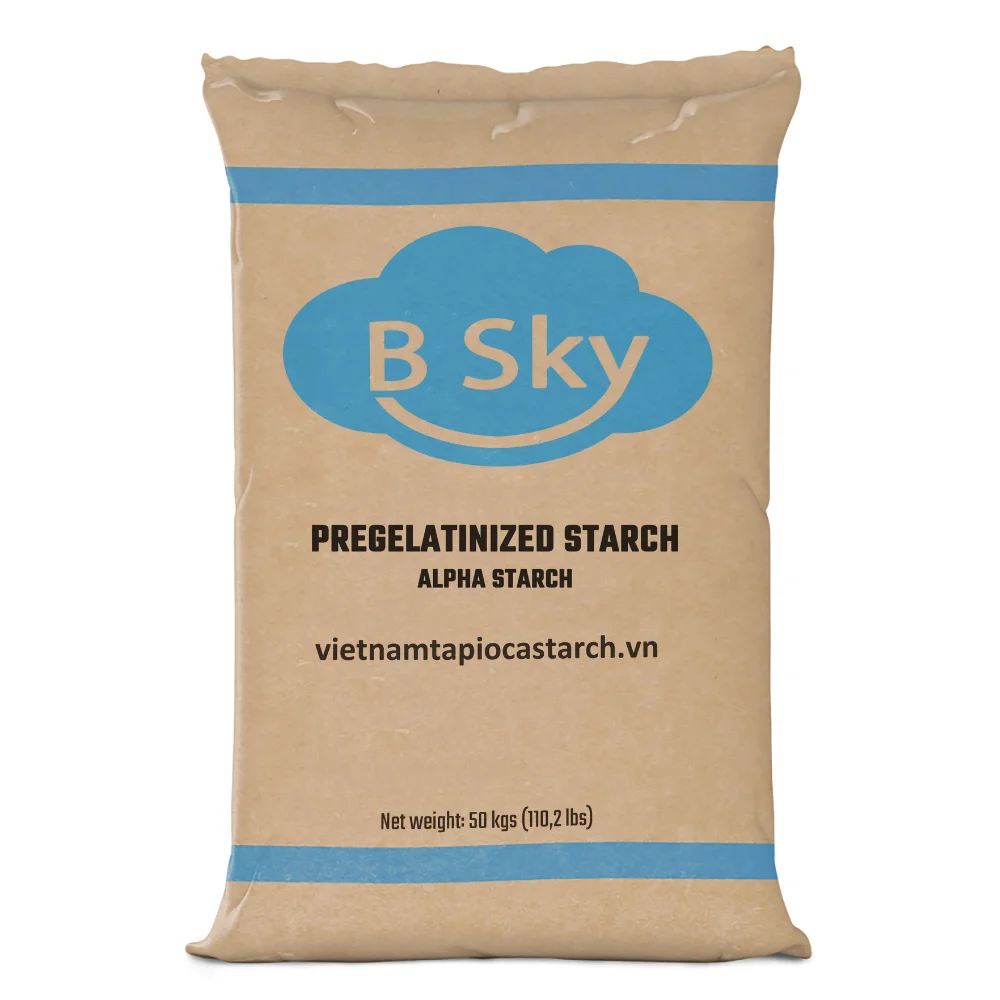
Why should you choose Tapioca starch for Charcoal Briquette Production
Pregelatinized tapioca starch, a cold-swelling tapioca starch, undergoes high-temperature processing, resulting in a user-friendly and highly efficient product.
The starch exhibits high viscosity, providing strong adhesive properties and efficient shaping capabilities, resulting in smooth and attractive finished products that minimize damage and loss during storage and transportation.
When used in coal briquettes, pregelatinized tapioca starch (cold-swelling tapioca starch) does not contribute ash or reduce the solid coal content, ensuring optimal heat output and combustion efficiency without impeding burning (it supports combustion).
Environmentally friendly (ECO): The starch does not emit harmful gases such as sulfur or impurities, maintaining product quality and safety standards that are non-toxic to human health and the environment.
Adding a small amount of pregelatinized tapioca starch (cold-swelling tapioca starch) helps reduce costs and overcomes limitations associated with traditional coal binders, such as low heat output and gas production rates during combustion that contribute to environmental pollution.
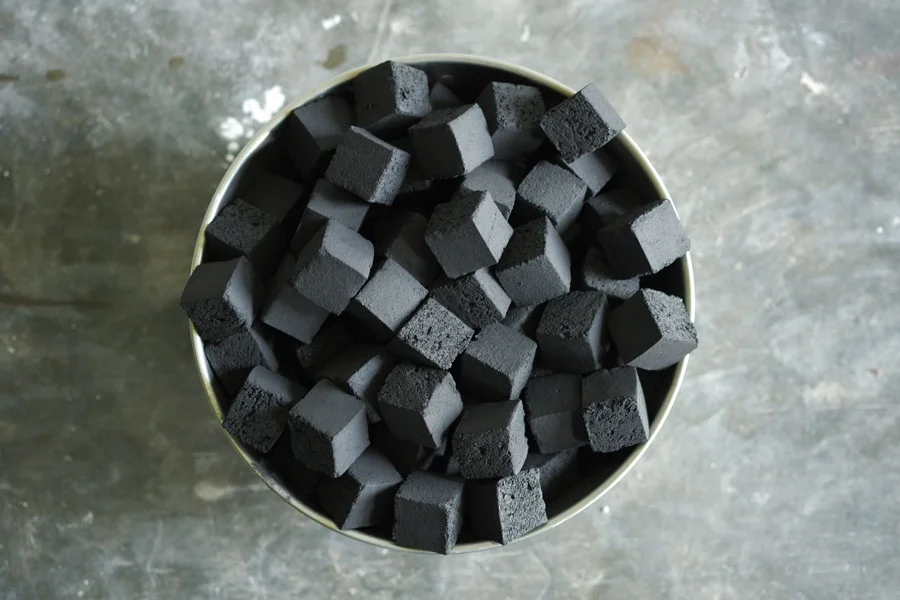
This adaptation emphasizes the positive impact of pregelatinized tapioca starch (cold-swelling tapioca starch) in improving the performance and sustainability of coal briquette production while meeting environmental standards and economic considerations.
How To Make Charcoal Briquette with Tapioca Starch
This guideline below will answer How to make charcoal briquette with tapioca starch:
1. Determine the Mixing Ratio:
Decide on the optimal ratio of modified tapioca starch to charcoal ingredients, typically between 6-10%, based on ingredient quality and desired characteristics of the finished product.
2. Initial Usage Recommendation:
Start with a recommended usage rate of 8% modified tapioca starch for the first batch of charcoal. Adjust this ratio based on the quality and performance of the finished charcoal.
3. Calculate the Amount for a Batch:
Calculate the amount of modified tapioca starch needed for a specific batch of charcoal. For example, if making 100kg of charcoal with charcoal powder weighing 92kg, use 8kg of modified tapioca starch (8% of 100kg).
4. Thorough Mixing:
Combine the charcoal powder and modified tapioca starch in a mixing vessel. Ensure thorough and even distribution of the starch throughout the charcoal powder. Use appropriate mixing equipment to achieve uniform blending.
5. Add Water and Mix:
Follow the charcoal mixing formula provided by the manufacturer to determine the amount of water needed. Add the water gradually to the charcoal-starch mixture while continuously mixing until a consistent and workable blend is achieved.
6. Final Adjustment:
Assess the consistency and quality of the charcoal mixture. Make any necessary adjustments to the starch ratio or water content based on production requirements and desired product characteristics.
7. Use the Mixture:
Once thoroughly mixed and adjusted, the charcoal-starch blend is ready for further processing or shaping into charcoal briquettes or other forms as per the manufacturer's production process.
By following these steps, you can effectively incorporate modified tapioca starch into charcoal production, enhancing the binding, shaping, and combustion properties of the charcoal while optimizing product performance and quality. Adjustments to the starch ratio can be made based on experience and specific production requirements over time.
B Sky - Be Your Tapioca Starch Solutions
If you are looking for Vietnam affordable-quality tapioca starch with:
- Food grade (Low SO2 starch)
- Standards: ISO, SMETA, HACCP, HALAL, KOSHER, FSSC, USFDA
- Diverse customization: 20/25/50kg PP/paper bag, 850kg jumbo bag…
Please feel free to contact us directly at:
- Whatsapp/Wechat: +84 98 352 45 99
- Email: marketing@viegoglobal.com
- Website/Blog: www.vietnamtapiocastarch.vn
Related Articles
Modified Tapioca Starch for Ketchup - A Great Thickener For Sauces
Modified tapioca starch for Ketchup is a product that many sauce manufacturers look for as it ...
Tapioca Rough Starch: An Indispensable Ingredient To Fried Chicken
Tapioca rough starch refers to a specific form of tapioca starch that has been processed into ...
What is Pregelatinized Tapioca Starch and Its Applications
Pregelatinized Tapioca Starch (cold-swelling tapioca starch) are modified starch types that have ...
Modified Starch For Tapioca Boba Pearls: Acetylated Starch Tapioca Base E1420
Modified starch for tapioca boba pearls is a type of starch that has been chemically modified to ...
Oxidised Tapioca Starch For Paper and Board: A Great Bonding Solution
Which tapioca starch for paper industry is the questions that has received many concerns from world ...
Native Tapioca Starch vs Modified Tapioca Starch: What are differences?
Native tapioca starch is a versatile ingredient widely used in the culinary world, especially in ...

